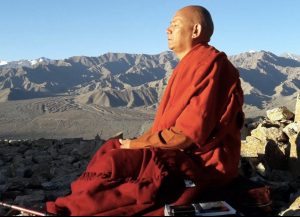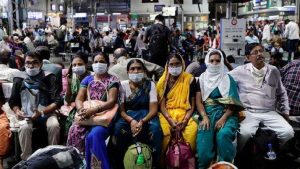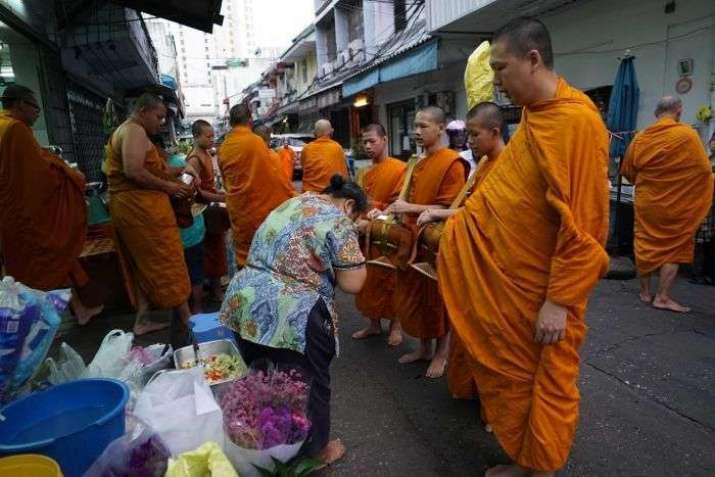
Health officials in Thailand have urged the country’s monastic sangha to take better care of their health as unhealthy diets and sedentary lives are leading to a crisis in the Buddhist community, characterized an increase in obesity and a greater incidence of lifestyle-related diseases.
Part of the problem stems from the tradition of offering alms to Buddhist monks, which is widely practiced in Thailand as way of demonstrating respect for monastics and as a means of earning karmic merit. In the early hours of the morning, across the country, monks walk through their local communities to collect offerings of food provided by lay Buddhists. Unfortunately, many of the offerings on which the monks subsist are loaded with sugar, fat, and oil, compounding the growing health crisis.
Thailand is a predominantly Buddhist country, with 93.2 per cent of the nation’s population of 69 million identifying as Buddhists, according to 2010 data from the Washington, DC-based Pew Research Center. The country has more than 40,000 Buddhist temples and some 300,000 monks. However, Thailand has never officially recognized the full monastic ordination of women, and bhikkhunis do not generally enjoy the same level of societal acceptance as their male counterparts.
“Before I dieted I could barely walk 100 meters without getting tired,” said 63-year-old monk Phra Pipit, during a medical check-up at a hospital. He added that he used to weigh 180 kilograms. (Bangkok Post)
Lifestyle diseases are rooted in the way people live. As well as diseases related to the use of alcohol, tobacco, and other drugs, they include conditions that stem from a lack of physical activity and unhealthy diets, such as heart disease, strokes, obesity, and type 2 diabetes, as well as hypertension and joint problems.
In December last year, health and religious officials published the National Health Charter for Monks, aimed at providing guidance for members of the clergy to watch what they eat. Earlier this year, Thailand’s Public Health Department called on members of the public to be less generous with sugar-loaded sweets and snacks, and to offer healthier foods to monks during their daily alms rounds.
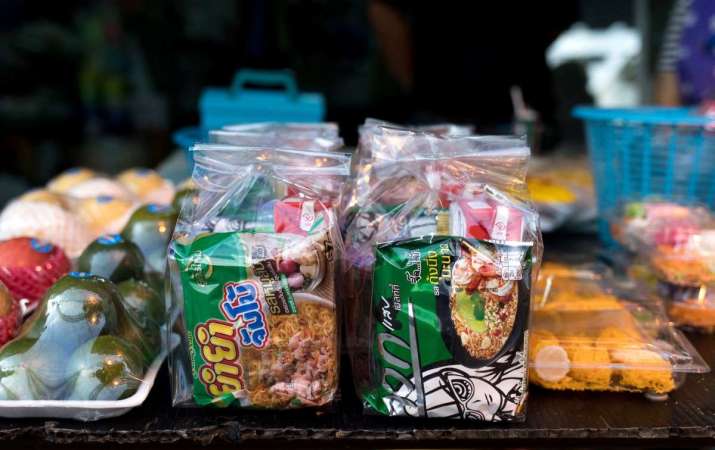
While Theravada monks in Thailand normally fast daily between noon and sunrise, with the exception of soft drinks and other liquids, the quantity of snack foods, cakes, puddings, dumplings, and traditional desserts they receive along with more savory offerings, coupled with a lack of physical activity, has resulted in the number of overweight monks now exceeding the national average—with a 48 per cent obesity rate, a 42 per cent rate of high blood pressure, and high levels of heart disease and cholesterol among monastics, according to a 2016 survey of monks by Chulalongkorn University. In a country that already exhibits one of the highest obesity rates in Asia (second only to Malaysia), this is a serious problem.
There is also the sensitive subject of exhibiting aversion by turning down offerings. “According to Lord Buddha’s teaching, whatever [laypeople] offer, we have to accept. We can’t deny, we can’t reject,” said Phra Rajvoramuni, assistant abbot at Sungvej temple in Bangkok, who co-authored the National Health Charter for Monks. (Bangkok Post)
Phra Rajvoramuni hopes that health education can be a catalyst for much-needed change—including regular basic medical check-ups. “The monks also should do something, like exercise . . . like walking meditation, cleaning the temple in the morning, sweeping the grounds,” he added. (Bangkok Post)
Phra Promwachirayan, a member of Sangha Supreme Council of Thailand, who was also involved in drawing up the National Health Charter for Monks, observed that while exercise can be “complicated” for monks it is “not impossible.” (The Guardian)
“Monks should exercise but it is difficult for us,” he noted. “You can exercise to promote your health but not to make your body muscly like a boxer. You cannot do weight lifting and you cannot jog, that is not proper, only fast walking or maybe a walking meditation. Yoga can also be fine but not in public.” (The Guardian)
According to data for 2015 gathered by Bangkok’s Priest Hospital, which operates under the Department of Medical Services of the Ministry of Public Health, the five most common conditions among Thai monks were high blood cholesterol, high blood pressure, diabetes, kidney failure, and degenerative knee joints. Data collected in 2016–17 from 200 temples in 50 districts of Bangkok, underlined the health crisis, showing that 60 per cent of surveyed monks struggled with high blood cholesterol while 50 per cent had high blood sugar.
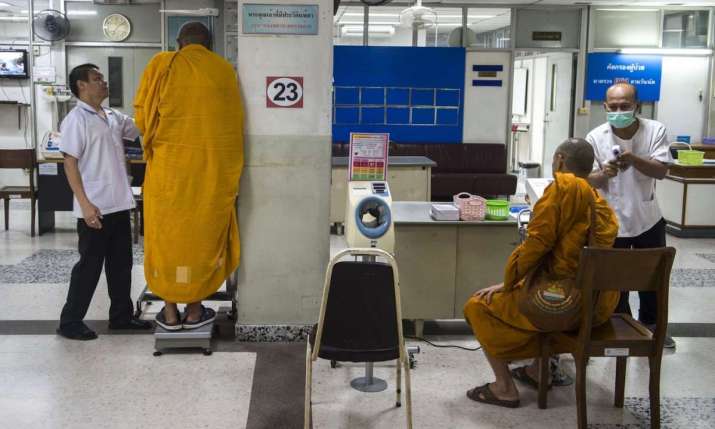
Twenty-eight-year-old Teerawit Eakpatcha, who recently left the monkhood after being temporarily ordained, emphasized that even his short experience as a monastic was enough to highlight the severity of the health challenges facing Thai monks.
“I gained three kilograms in only 10 days,” said Teerawit, who spent his time as a monk at a rural monastery in Kamphaeng Phet Province. He acknowledged that the lack of physical exercise is also a part of the problem, admitting that it had been a challenge for him as someone accustomed to being physically active to not undertake any exercise at all during his 10 days. (Bangkok Post)
“Monks should be mindful of what they eat—the amount as well as the kind of food,” said Phra Maha Boonchuay Doojai, former director of Chiang Mai Buddhist College in northern Thailand, who was also involved in drawing up the health recommendations for the monastic sangha. “It is one of the Buddha’s teachings,” he noted. “When we are healthy, we can serve the people better.” (The New York Times)
See more
Eat, pray, exercise: Monks battle weight problems (Bangkok Post)
The robes are getting tight (Bangkok Post)
In Thailand, ‘Obesity in Our Monks Is a Ticking Time Bomb’ (The New York Times)
Battle of the bulge: Thailand strives to bring monk obesity crisis under control (The Guardian)
Obese monks urged to exercise amid health concerns – though weight training is banned (i News)





